Find Help
More Items From Ergsy search
-
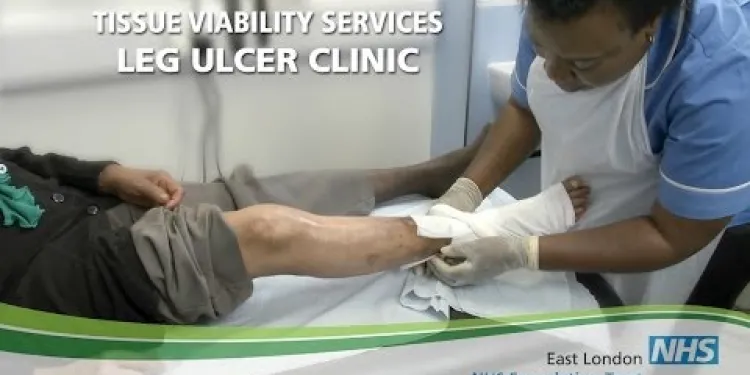
Leg ulcer see Venous leg ulcer
Relevance: 100%
-
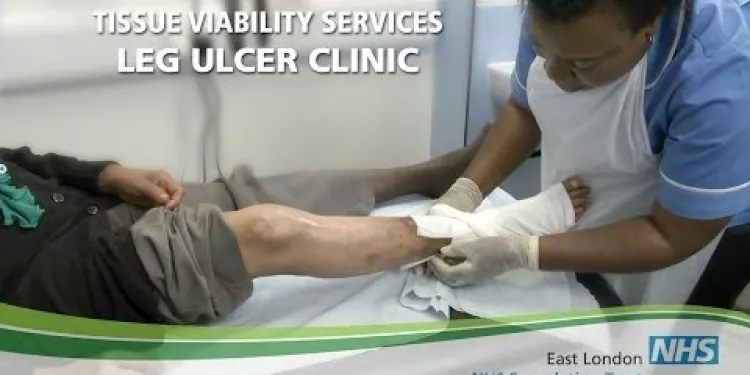
Leg Ulcers
Relevance: 100%
-
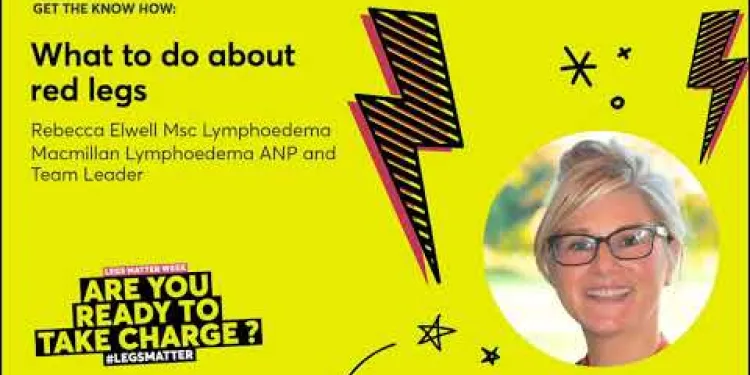
What to do about red legs
Relevance: 43%
-

Leg amputation and life afterwards
Relevance: 42%
-
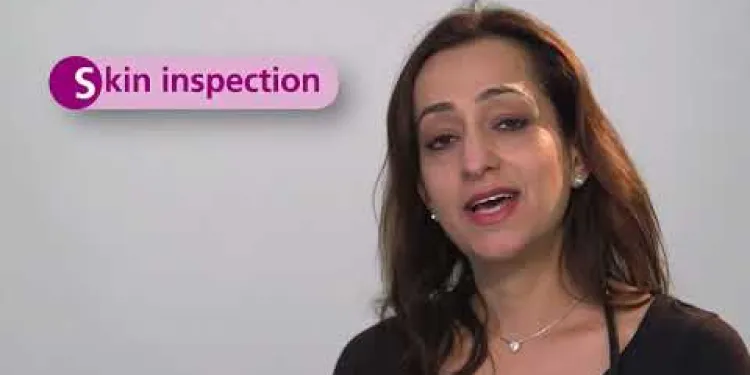
Pressure ulcer prevention: A guide for patients, carers and healthcare professionals
Relevance: 40%
-
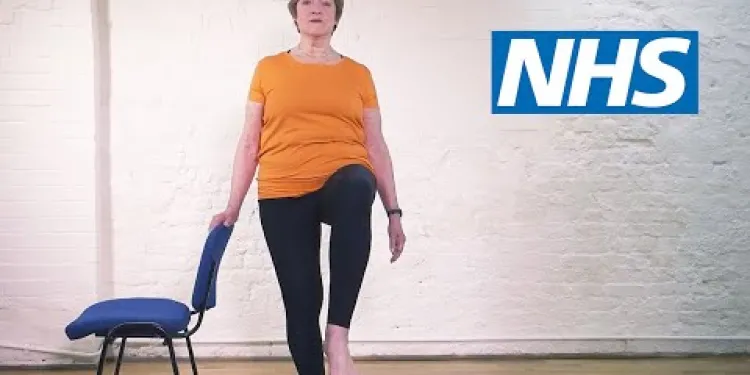
Pilates for back pain: Standing on one leg | NHS
Relevance: 33%
-

What are the symptoms of deep vein thrombosis (DVT)?
Relevance: 23%
-

What conditions is Omeprazole used to treat?
Relevance: 18%
-

What complications are associated with Type 2 Diabetes?
Relevance: 15%
-
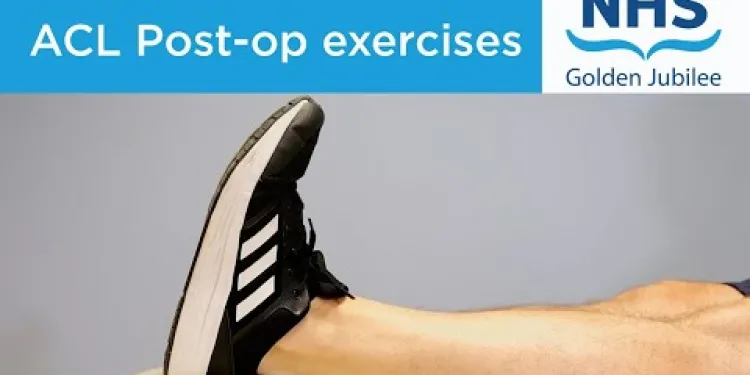
ACL exercises post-operation
Relevance: 15%
-

What are the symptoms of arterial thrombosis?
Relevance: 14%
-
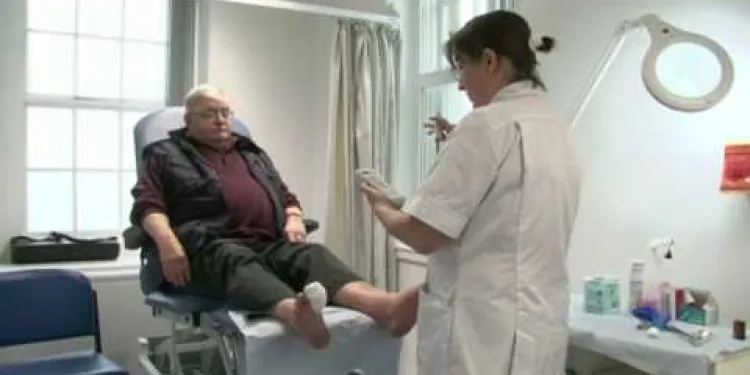
Diabetic Foot Conditions Podiatrist
Relevance: 14%
-
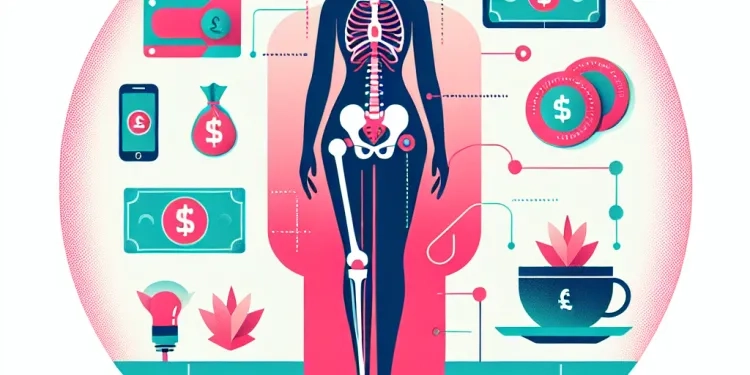
What are the risks associated with hip replacement surgery?
Relevance: 14%
-
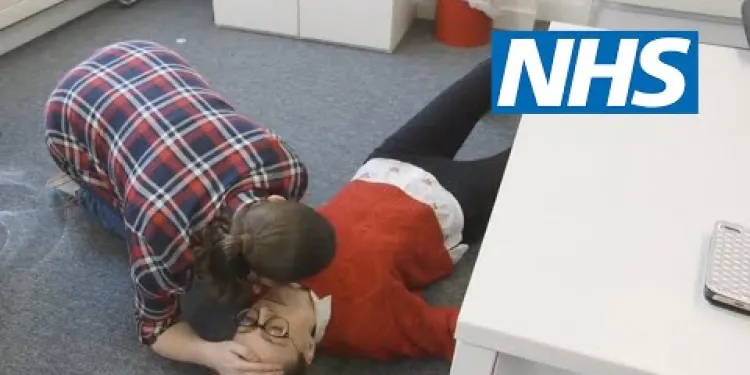
How to put someone into the recovery position | NHS
Relevance: 14%
-

What is Aspirin?
Relevance: 13%
-

How big can spiders in the UK get?
Relevance: 13%
-
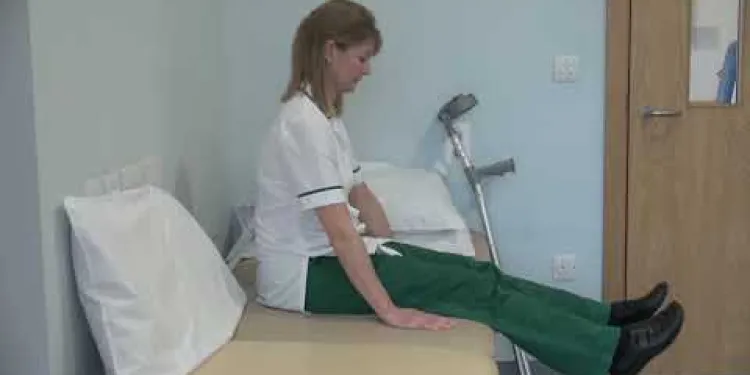
Hip replacement - getting into bed
Relevance: 13%
-
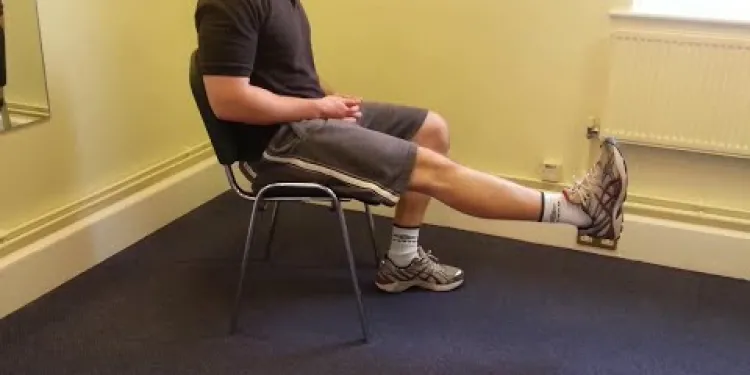
Knee Care Exercises
Relevance: 12%
-
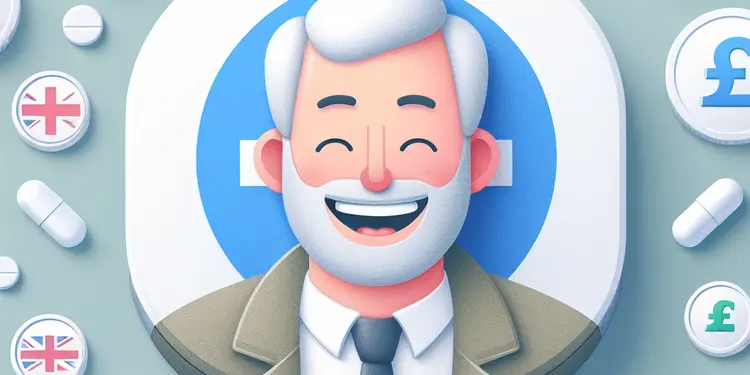
What is the drug Omeprazole?
Relevance: 12%
-
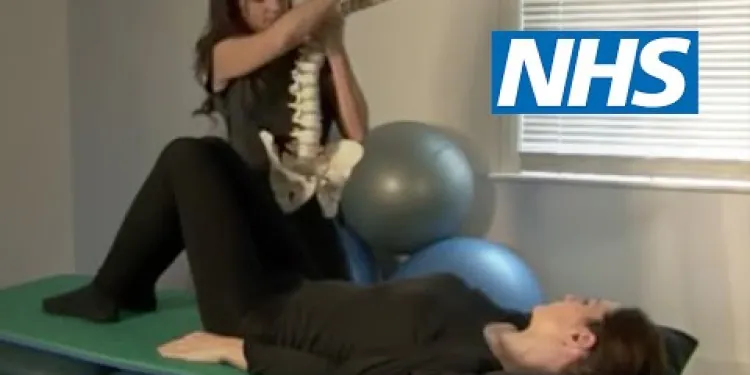
Exercises for sciatica: herniated or slipped disc | NHS
Relevance: 12%
-
Should individuals with certain medical conditions avoid aspirin?
Relevance: 12%
-
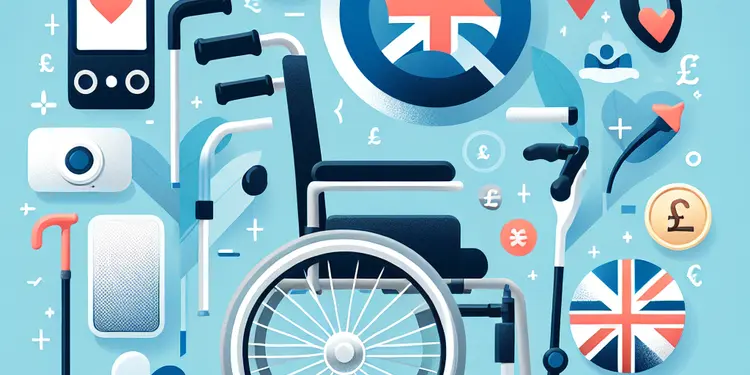
What are common types of mobility equipment?
Relevance: 12%
-
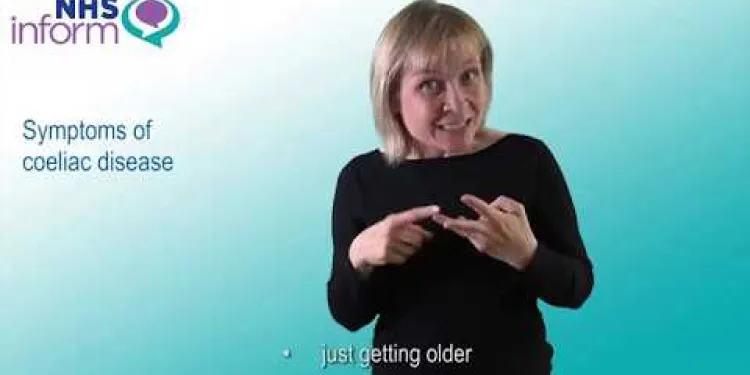
Symptoms of coeliac disease
Relevance: 12%
-

What should I wear for exercising during pregnancy?
Relevance: 12%
-

Why might someone need a stoma bag?
Relevance: 12%
-
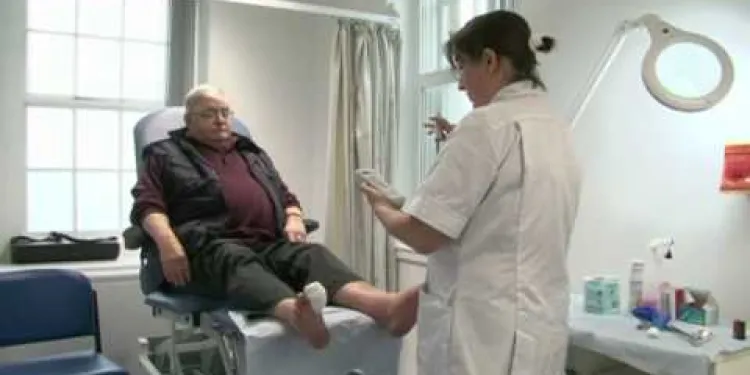
Diabetes Care - Preventing Amputations
Relevance: 12%
-

Falls Prevention - strength and balance exercises
Relevance: 12%
-

What are the common side effects of Abiraterone?
Relevance: 11%
-
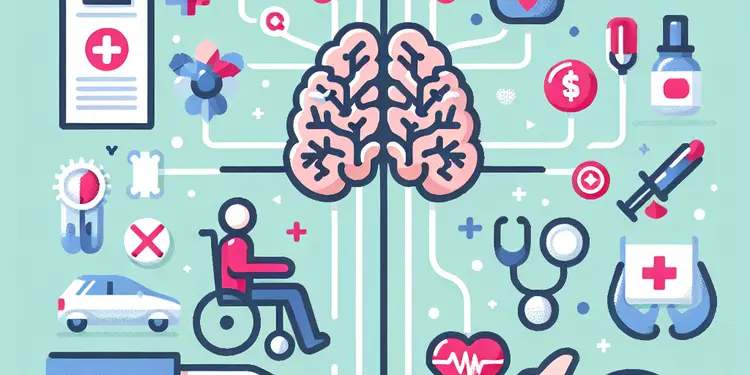
What are the primary symptoms of motor neurone disease?
Relevance: 11%
-
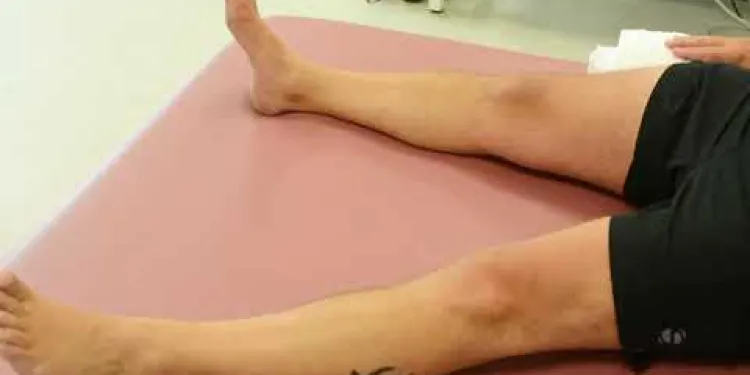
Joint School - Hip Exercises
Relevance: 11%
-
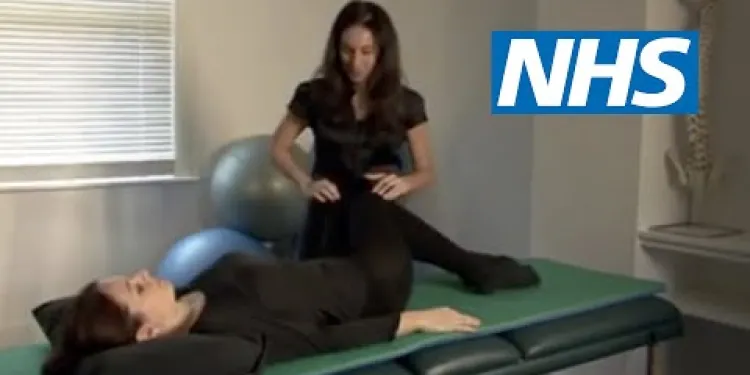
Exercises for sciatica: piriformis syndrome | NHS
Relevance: 11%
-
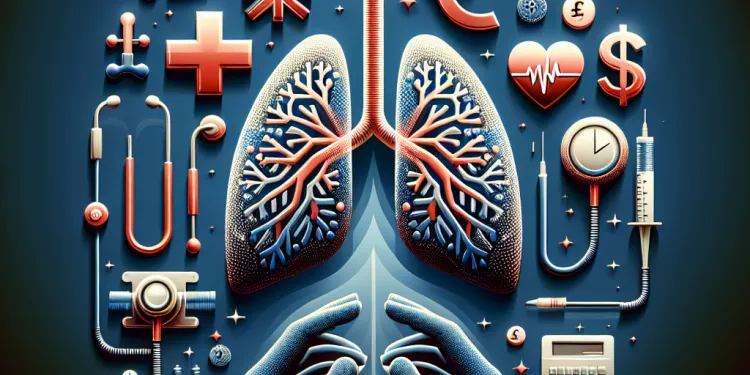
What is a pulmonary embolism?
Relevance: 11%
-
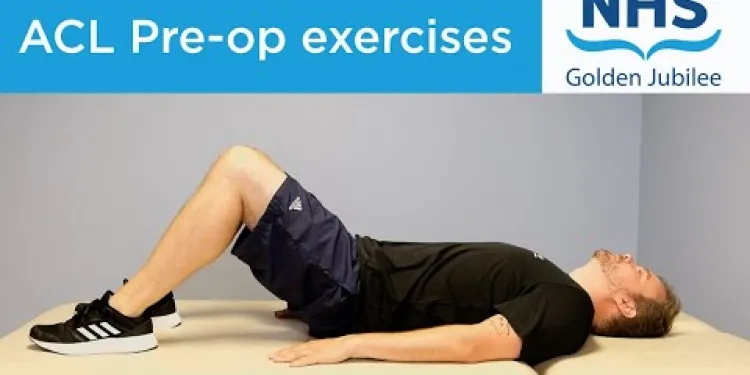
ACL pre-operation exercises
Relevance: 11%
-
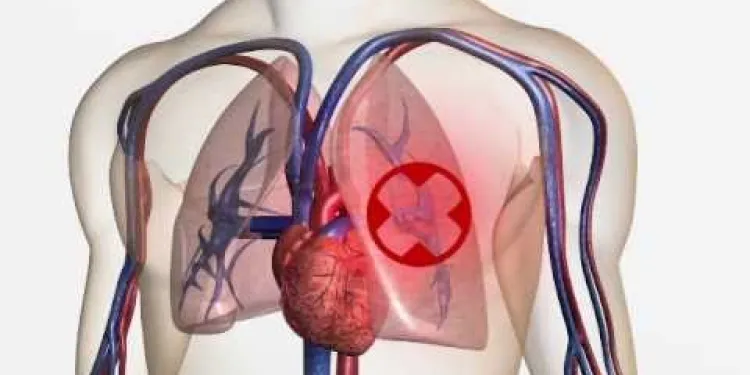
A guide to hospital-acquired deep vein thrombosis and pulmonary embolism
Relevance: 10%
-

What are the side effects of Ibuprofen?
Relevance: 10%
-
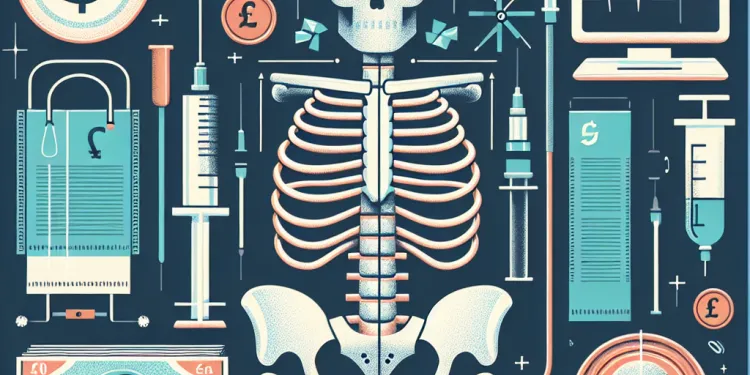
What should I expect after the spinal anaesthesia wears off?
Relevance: 10%
-

Can aspirin help in reducing the risk of strokes?
Relevance: 10%
-
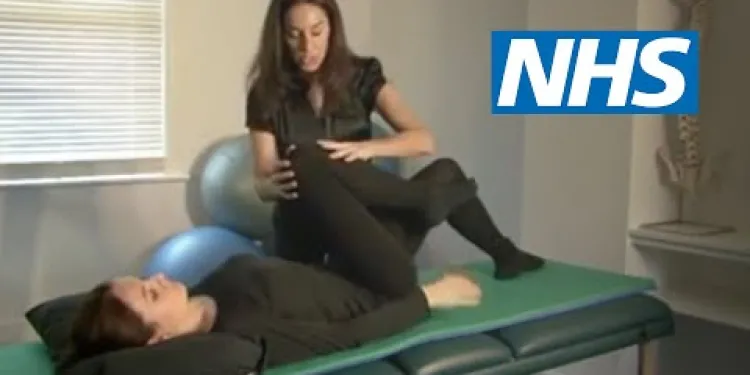
Exercises for sciatica: spinal stenosis | NHS
Relevance: 10%
-

How do NSAIDs work to reduce pain?
Relevance: 10%
-

What are the complications of sickle cell disease?
Relevance: 10%
Leg Ulcer Clinic, East London NHS Foundation Trust
Introduction to Our Clinic
The Leg Ulcer Clinic, part of the East London NHS Foundation Trust, offers a range of services dedicated to the treatment and management of leg ulcers. Our clinic is committed to providing comprehensive care to patients, ensuring a holistic approach that promotes healing and prevents recurrence of ulcers.
Services We Offer
At the Leg Ulcer Clinic, we utilise the latest medical advancements and best practices to offer the following services:
- Diagnosis and Assessment: Thorough examination and identification of underlying causes of leg ulcers.
- Wound Care Management: Regular cleaning and dressing of ulcers to promote healing.
- Compression Therapy: Application of compression bandages or stockings to improve blood flow and aid healing.
- Patient Education: Guidance on lifestyle changes, nutrition, and self-care techniques to prevent recurrence.
- Multidisciplinary Team Support: Coordination with other healthcare providers for comprehensive care.
Our Team
Our clinic is staffed with a dedicated team of healthcare professionals, including specialist nurses, vascular surgeons, podiatrists, and dietitians, all working together to deliver personalised care plans tailored to the needs of each patient.
How to Access Our Services
Patients can access our Leg Ulcer Clinic through referrals from their GP or other healthcare providers. We aim to make our services accessible to everyone in the community, ensuring timely and effective treatment for all.
Why Choose Us?
Choosing the Leg Ulcer Clinic at the East London NHS Foundation Trust means opting for a well-established institution known for its commitment to patient care and advanced treatment options. Our patient-centred approach ensures that every individual receives the attention and support needed for optimal recovery.
Contact Information
For more information or to make an appointment, please contact us at:
Address: East London NHS Foundation Trust, London
Phone: [Insert Phone Number]
Email: [Insert Email Address]
Leg Ulcer Clinic, East London NHS Foundation Trust
About Our Clinic
Welcome to the Leg Ulcer Clinic! We are part of the East London NHS Foundation Trust. We help people with leg ulcers get better. Our clinic cares for people by helping their leg ulcers heal and teaching them how to stop them from coming back.
What We Do
At our clinic, we use the newest ideas in medicine to help you feel better. Here are some things we do:
- Finding Out What's Wrong: We look at your leg to understand why you have a leg ulcer.
- Caring for Your Wound: We clean and cover your leg ulcer to help it heal.
- Compression Therapy: We use special bandages or stockings to help blood flow better and heal your ulcer.
- Learning and Education: We teach you how to take care of your legs, eat well, and stay healthy to stop ulcers from coming back.
- Team Support: Our healthcare team works together to give you the best care.
Meet Our Team
We have a great team of healthcare workers here. Our team includes nurses, doctors who fix veins, foot specialists, and diet experts. They all work together to help you get better.
How You Can Get Help
You can come to our clinic if your family doctor or another healthcare worker refers you. We want to help everyone in our community get healthy, so we make sure our care is available to you when you need it.
Why Pick Us?
Our clinic is part of a respected healthcare group. We care deeply about our patients and use the best treatments available. We make sure each person gets the special care and attention they need to heal well.
Contact Us
If you want more information or need to make an appointment, you can contact us here:
Address: East London NHS Foundation Trust, London
Phone: [Insert Phone Number]
Email: [Insert Email Address]
Frequently Asked Questions
What is a leg ulcer?
A leg ulcer is a long-lasting sore that takes more than 4-6 weeks to heal. Most commonly, it occurs on the lower legs and can be a result of poor blood circulation.
What are the common causes of leg ulcers?
Common causes include venous insufficiency, arterial insufficiency, diabetes, and pressure sores. Venous ulcers are the most common type.
How do I know if I have a leg ulcer?
Symptoms include a sore on the leg that does not heal within a few weeks, aching or swelling in the legs, and possibly itching or a rash on the surrounding skin.
How are leg ulcers treated?
Treatment generally involves cleaning and dressing the wound, managing any underlying conditions, and improving circulation, often through compression therapy.
What is compression therapy?
Compression therapy involves the use of compression bandages or stockings to improve blood flow and reduce swelling, which can help heal venous leg ulcers.
What services does the Leg Ulcer Clinic provide?
The clinic provides assessment, diagnosis, and treatment of leg ulcers, including wound care, compression therapy, and education on managing the condition.
Do I need a referral to attend the Leg Ulcer Clinic?
Yes, typically you will need a referral from your GP or another healthcare professional to attend the clinic.
How often do I need to attend the clinic?
The frequency of visits depends on the severity of your ulcer and your treatment plan. Your healthcare provider will give you a specific schedule.
Can I self-treat a leg ulcer at home?
While some care can be managed at home, it is important to seek professional medical advice to ensure proper treatment and prevent complications.
What lifestyle changes can help prevent leg ulcers?
Maintaining a healthy weight, exercising regularly to improve circulation, elevating your legs, and wearing compression stockings as prescribed can help prevent leg ulcers.
Is treatment for leg ulcers covered by the NHS?
Yes, treatment for leg ulcers is generally covered by the NHS. This includes consultations, dressings, and compression therapy.
What should I bring to my first appointment at the Leg Ulcer Clinic?
Bring a list of your medications, any relevant medical history, and details of any treatments you have already tried.
How long does it take for a leg ulcer to heal?
The healing time for a leg ulcer varies depending on factors like its size, underlying health conditions, and how well you follow the treatment plan. Many ulcers can take a few months to heal completely.
Can leg ulcers recur after treatment?
Yes, leg ulcers can recur, especially if the underlying causes (such as poor circulation or diabetes) are not managed properly.
Where is the Leg Ulcer Clinic located?
The East London NHS Foundation Trust has several locations. It's best to contact the specific clinic location for detailed address and transportation information.
What is a leg ulcer?
A leg ulcer is a sore or wound on the skin of your leg. It happens when skin breaks and does not heal properly.
This can cause pain and swelling. If not taken care of, it can get bigger or infected.
Helpful tips:
- Keep the sore area clean and covered.
- Visit a doctor or nurse for advice and treatment.
- Rest with your leg up to help with swelling.
A leg ulcer is a sore on your leg that does not heal quickly. It takes more than 4 to 6 weeks to get better. It usually happens on the lower part of your legs and this can happen because blood does not move well in your legs.
What causes leg sores?
Lots of things can cause sores on your legs. Here are some common reasons:
- Problems with blood flow. Sometimes, blood can't move right in your legs.
- Injury. If you hurt your leg, it can turn into a sore.
- Health problems. Things like diabetes can cause sores.
- Not moving. If you can't walk or stand a lot, sores might happen.
If reading is hard, you can:
- Ask someone to read with you.
- Use a ruler or finger to follow each line.
- Take breaks if you get tired.
Common causes of these problems are:
- Vein problems (called venous insufficiency)
- Artery problems (called arterial insufficiency)
- Diabetes
- Pressure sores
Vein problems cause most of these issues.
If you find reading hard, you can try using audiobooks to listen instead of read. Highlighting text can also help. Keep practicing to get better! ?
How can I tell if I have a leg ulcer?
Look out for these signs:
- A sore on your leg that won't get better after a few weeks.
- Your legs feel achy or swollen.
- You might feel itching or see a rash on the skin near the sore.
If you notice these signs, telling a grown-up or a doctor can help your leg feel better.
How do you treat leg sores?
Leg sores are open wounds on the legs that need help to heal. Doctors can help make them better.
- Clean the Sore: Wash the sore gently with soap and water.
- Cover the Sore: Put a clean bandage on it. This stops dirt and germs.
- Rest and Lift: Rest your leg. Try to keep it up on a pillow.
- Visit the Doctor: The doctor might give you special medicine or a wrap for your leg.
- Eat Healthy: Good food helps your body to heal.
- Wear Comfortable Shoes: This helps your legs to feel better.
If you have questions, ask a friend or family member. They can help you with your sores.
Treatment usually means cleaning the wound and putting on a bandage. It also means taking care of any other health problems and helping the blood move better. Doctors often use special wraps called compression wraps to help blood flow.
What is compression therapy?
Compression therapy is a way to help your body heal. It uses special socks or bandages that gently squeeze your legs. This helps your blood move better. It can help with swelling and make your legs feel better.
If you find reading hard, try these tips:
- Use a ruler or your finger to follow the words.
- Take your time and read slowly.
- Ask someone to read with you.
What is Compression Therapy?
Compression therapy is a way to help your legs feel better. It uses special bandages or socks that are tight. This helps blood flow better in your legs. It also helps to stop swelling. This can help sores on your legs heal faster.
Extra Tips
- Use a timer to remind you to put on your bandages or socks every day.
- Ask a friend or family member to help you if you find it hard to use the bandages or socks.
- Talk to your doctor if you have questions or problems.
What help does the Leg Ulcer Clinic give?
The Leg Ulcer Clinic helps people with sores or wounds on their legs. Here are some things they do to help: - They clean and take care of leg sores. - They show you how to keep your legs healthy. - They give advice on what to do next. You can bring a friend or family member to help you understand. You can also use tools like pictures or videos to learn more.The clinic helps people with leg sores. They check what is wrong, find out what is causing it, and help make it better. They clean the sores, wrap the legs to help them heal, and teach people how to take care of their sores.
Do I need a note from my doctor to go to the Leg Ulcer Clinic?
Yes, you usually need a note from your doctor or another healthcare worker to go to the clinic.
How often do I need to go to the clinic?
It is important to know how many times you need to go to the clinic.
If you are not sure, ask the staff at the clinic for help.
You can also use a calendar to mark the days you need to visit.
How often you need to visit the doctor depends on how bad your sore is and your treatment plan. Your doctor will tell you when to come back.
Can I take care of a leg ulcer at home?
Do you have a painful sore on your leg? This is called a leg ulcer. Here is some simple advice:
- First, talk to a doctor or a nurse. They can tell you the best way to treat it.
- Keep the sore clean. Use warm water and a gentle cloth.
- Put a clean bandage on the sore. Change it often.
- Rest your leg and keep it up on a pillow.
- Drink lots of water. It helps your body heal.
Remember, always ask for help if you are not sure what to do. You can use colored sticky notes or alarms on your phone to remind you to change bandages or take breaks to rest your leg. It's important to keep talking to your doctor about how your leg feels.
Some care can be done at home. But it is important to talk to a doctor to make sure you get the right treatment. This helps you stay safe and avoid problems.
How can you change your daily habits to stop leg sores?
To keep your legs healthy and stop sores from forming, you can:
- Eat well and stay at a healthy weight.
- Exercise often to keep your blood moving.
- Put your legs up sometimes to help blood flow.
- Wear special socks called compression stockings if your doctor says so.
Using these tips can help you take care of your legs.
Does the NHS pay for leg ulcer treatment?
If you have a sore on your leg called a leg ulcer, the NHS can help you. They will pay for your treatment. The NHS is a health service that helps people in the UK.
If you have a leg ulcer, go to your doctor or nurse. They can help you get better. They might wrap a special bandage on your leg or give you medicine.
You can use tools to help understand words better. Try using a picture dictionary. It shows pictures and words together to help you learn.
Yes, the NHS usually pays for leg ulcer treatment. The treatment includes talking to a doctor, bandages, and special socks that help.
What to Bring to Your First Visit at the Leg Wound Clinic?
Here is a simple list of things you need to bring:
- Your appointment letter or card
- A list of any medicine you take
- Some questions you might want to ask
- Something to help you stay calm, like a book or music
Ask someone to come with you if you want support. You can also use reminder apps to help you remember your appointment.
Make a list of all the medicines you take. Write down any important health information about yourself. Also, write down details of any treatments you have tried before.
How long does it take for a leg ulcer to get better?
How long it takes for a leg ulcer to heal can be different for each person. It depends on how big the sore is and your overall health. Following your doctor's advice is very important. Most leg ulcers can take a few months to heal all the way.
Here are some tips to help you:
- Follow your treatment plan just like your doctor tells you.
- Keep the sore clean and covered.
- Eat healthy food and drink lots of water.
- Try to rest your legs and keep them up when you can.
- Ask for help if you feel unsure or need support.
Can leg sores come back after treatment?
Sometimes, leg sores can come back after you have had treatment. It is important to take care of your legs and follow your doctor's advice.
Here are some things that might help:
- Wear special socks or stockings that squeeze your legs gently. These are called compression stockings.
- Keep your legs clean and dry.
- Move your legs and walk around as much as you can.
- If you need help or have questions, ask your doctor or nurse.
Yes, leg ulcers can come back. This happens if the main problems, like bad blood flow or diabetes, are not taken care of well.
Where can I find the Leg Ulcer Clinic?
The East London NHS Foundation Trust has different places. To find out exactly where to go and how to get there, it's best to call the clinic you need.
Useful Links
Have you found an error, or do you have a link or some information you would like to share? Please let us know using the form below.
-->
This website offers general information and is not a substitute for professional advice.
Always seek guidance from qualified professionals.
If you have any medical concerns or need urgent help, contact a healthcare professional or emergency services immediately.
Some of this content was generated with AI assistance. We’ve done our best to keep it accurate, helpful, and human-friendly.
- Ergsy carfully checks the information in the videos we provide here.
- Videos shown by Youtube after a video has completed, have NOT been reviewed by ERGSY.
- To view, click the arrow in centre of video.
- Most of the videos you find here will have subtitles and/or closed captions available.
- You may need to turn these on, and choose your preferred language.
- Go to the video you'd like to watch.
- If closed captions (CC) are available, settings will be visible on the bottom right of the video player.
- To turn on Captions, click settings .
- To turn off Captions, click settings again.
More Items From Ergsy search
-

Leg ulcer see Venous leg ulcer
Relevance: 100%
-

Leg Ulcers
Relevance: 100%
-

What to do about red legs
Relevance: 43%
-

Leg amputation and life afterwards
Relevance: 42%
-

Pressure ulcer prevention: A guide for patients, carers and healthcare professionals
Relevance: 40%
-

Pilates for back pain: Standing on one leg | NHS
Relevance: 33%
-

What are the symptoms of deep vein thrombosis (DVT)?
Relevance: 23%
-

What conditions is Omeprazole used to treat?
Relevance: 18%
-

What complications are associated with Type 2 Diabetes?
Relevance: 15%
-

ACL exercises post-operation
Relevance: 15%
-

What are the symptoms of arterial thrombosis?
Relevance: 14%
-

Diabetic Foot Conditions Podiatrist
Relevance: 14%
-

What are the risks associated with hip replacement surgery?
Relevance: 14%
-

How to put someone into the recovery position | NHS
Relevance: 14%
-

What is Aspirin?
Relevance: 13%
-

How big can spiders in the UK get?
Relevance: 13%
-

Hip replacement - getting into bed
Relevance: 13%
-

Knee Care Exercises
Relevance: 12%
-

What is the drug Omeprazole?
Relevance: 12%
-

Exercises for sciatica: herniated or slipped disc | NHS
Relevance: 12%
-
Should individuals with certain medical conditions avoid aspirin?
Relevance: 12%
-

What are common types of mobility equipment?
Relevance: 12%
-

Symptoms of coeliac disease
Relevance: 12%
-

What should I wear for exercising during pregnancy?
Relevance: 12%
-

Why might someone need a stoma bag?
Relevance: 12%
-

Diabetes Care - Preventing Amputations
Relevance: 12%
-

Falls Prevention - strength and balance exercises
Relevance: 12%
-

What are the common side effects of Abiraterone?
Relevance: 11%
-

What are the primary symptoms of motor neurone disease?
Relevance: 11%
-

Joint School - Hip Exercises
Relevance: 11%
-

Exercises for sciatica: piriformis syndrome | NHS
Relevance: 11%
-

What is a pulmonary embolism?
Relevance: 11%
-

ACL pre-operation exercises
Relevance: 11%
-

A guide to hospital-acquired deep vein thrombosis and pulmonary embolism
Relevance: 10%
-

What are the side effects of Ibuprofen?
Relevance: 10%
-

What should I expect after the spinal anaesthesia wears off?
Relevance: 10%
-

Can aspirin help in reducing the risk of strokes?
Relevance: 10%
-

Exercises for sciatica: spinal stenosis | NHS
Relevance: 10%
-

How do NSAIDs work to reduce pain?
Relevance: 10%
-

What are the complications of sickle cell disease?
Relevance: 10%


